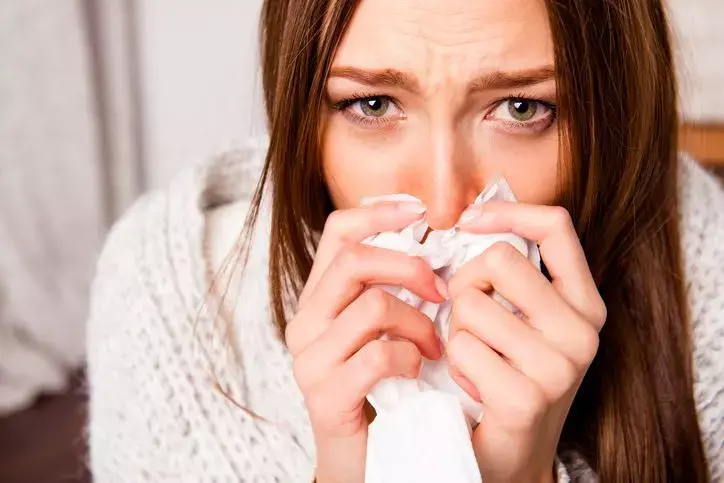- Home
- Medical news & Guidelines
- Anesthesiology
- Cardiology and CTVS
- Critical Care
- Dentistry
- Dermatology
- Diabetes and Endocrinology
- ENT
- Gastroenterology
- Medicine
- Nephrology
- Neurology
- Obstretics-Gynaecology
- Oncology
- Ophthalmology
- Orthopaedics
- Pediatrics-Neonatology
- Psychiatry
- Pulmonology
- Radiology
- Surgery
- Urology
- Laboratory Medicine
- Diet
- Nursing
- Paramedical
- Physiotherapy
- Health news
- Fact Check
- Bone Health Fact Check
- Brain Health Fact Check
- Cancer Related Fact Check
- Child Care Fact Check
- Dental and oral health fact check
- Diabetes and metabolic health fact check
- Diet and Nutrition Fact Check
- Eye and ENT Care Fact Check
- Fitness fact check
- Gut health fact check
- Heart health fact check
- Kidney health fact check
- Medical education fact check
- Men's health fact check
- Respiratory fact check
- Skin and hair care fact check
- Vaccine and Immunization fact check
- Women's health fact check
- AYUSH
- State News
- Andaman and Nicobar Islands
- Andhra Pradesh
- Arunachal Pradesh
- Assam
- Bihar
- Chandigarh
- Chattisgarh
- Dadra and Nagar Haveli
- Daman and Diu
- Delhi
- Goa
- Gujarat
- Haryana
- Himachal Pradesh
- Jammu & Kashmir
- Jharkhand
- Karnataka
- Kerala
- Ladakh
- Lakshadweep
- Madhya Pradesh
- Maharashtra
- Manipur
- Meghalaya
- Mizoram
- Nagaland
- Odisha
- Puducherry
- Punjab
- Rajasthan
- Sikkim
- Tamil Nadu
- Telangana
- Tripura
- Uttar Pradesh
- Uttrakhand
- West Bengal
- Medical Education
- Industry
Single dose of omalizumab before pollen season beneficial in seasonal allergic rhinitis: Study

A dose of omalizumab administered before pollen season improved symptom control and quality of life compared with standard medication among patients with seasonal allergic rhinitis, according to a study in Clinical and Translational Allergy.
To date, no study has evaluated the efficacy of preseasonal omalizumab therapy with a cost-effective dose and at an appropriate time point compared with standard medication in seasonal allergic rhinitis (SAR) patients.
This was a prospective randomized controlled open-label single-centre trial. 32 SAR patients were randomized to receive a single injection of omalizumab 300-mg approximately two weeks before the start of the pollen period (PP) or medication therapy. All patients completed daily questionnaires; recording symptoms, medication use and quality of life (QoL) throughout the observation period. The primary efficacy parameter was the mean daily Combined Symptom and Medication Score (CSMS).
Results:
Preseasonal omalizumab significantly reduced the changes of mean daily CSMS of nose during the PP (p < 0.001), peak pollen period (PPP) and PP after PPP (PPP-PP) (p = 0.002) and Post-PP (p = 0.009) compared to standard medication. The proportion of allergy symptoms-relieving medication-free days during PPP-PP was also significantly higher in preseasonal omalizumab-treated group (76.2(16.7-98.8))% than in medication-treated group (19.0(0-71.4))% (p = 0.030). Omalizumab could achieve the same nasal symptom control during the entire pollen season and better eye symptoms relieving results in PP (p = 0.046) and PPP-PP (p = 0.004) than medication treatment. Significantly greater improvement in QoL was also obtained with omalizumab-pretreatment during the PP (p = 0.037) and PPP-PP (p = 0.004).
Thus, Administration of a single injection of 300 mg omalizumab two weeks before the start of the pollen season achieves better overall control of symptoms and QoL, with significantly reduced allergy symptoms-relieving medication usage, compared with standard pharmacotherapy in SAR patients.
Reference:
Omalizumab is effective in the preseasonal treatment of seasonal allergic rhinitis by Yuan Zhang et al. published in the Clinical and Translational Allergy.
https://pubmed.ncbi.nlm.nih.gov/35024137/
Dr. Shravani Dali has completed her BDS from Pravara institute of medical sciences, loni. Following which she extensively worked in the healthcare sector for 2+ years. She has been actively involved in writing blogs in field of health and wellness. Currently she is pursuing her Masters of public health-health administration from Tata institute of social sciences. She can be contacted at editorial@medicaldialogues.in.
Dr Kamal Kant Kohli-MBBS, DTCD- a chest specialist with more than 30 years of practice and a flair for writing clinical articles, Dr Kamal Kant Kohli joined Medical Dialogues as a Chief Editor of Medical News. Besides writing articles, as an editor, he proofreads and verifies all the medical content published on Medical Dialogues including those coming from journals, studies,medical conferences,guidelines etc. Email: drkohli@medicaldialogues.in. Contact no. 011-43720751


